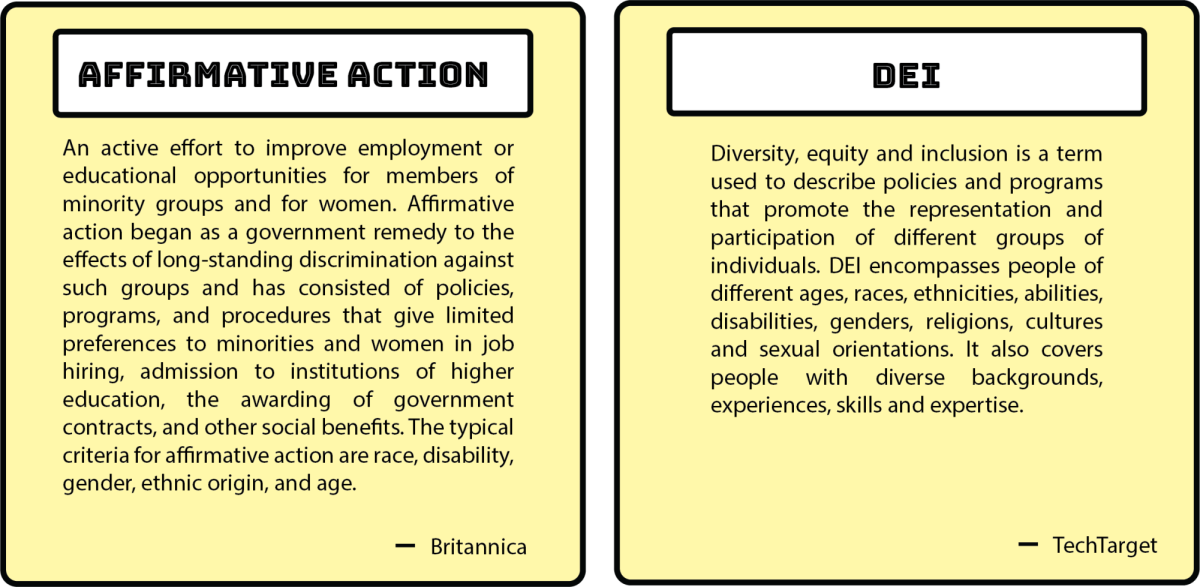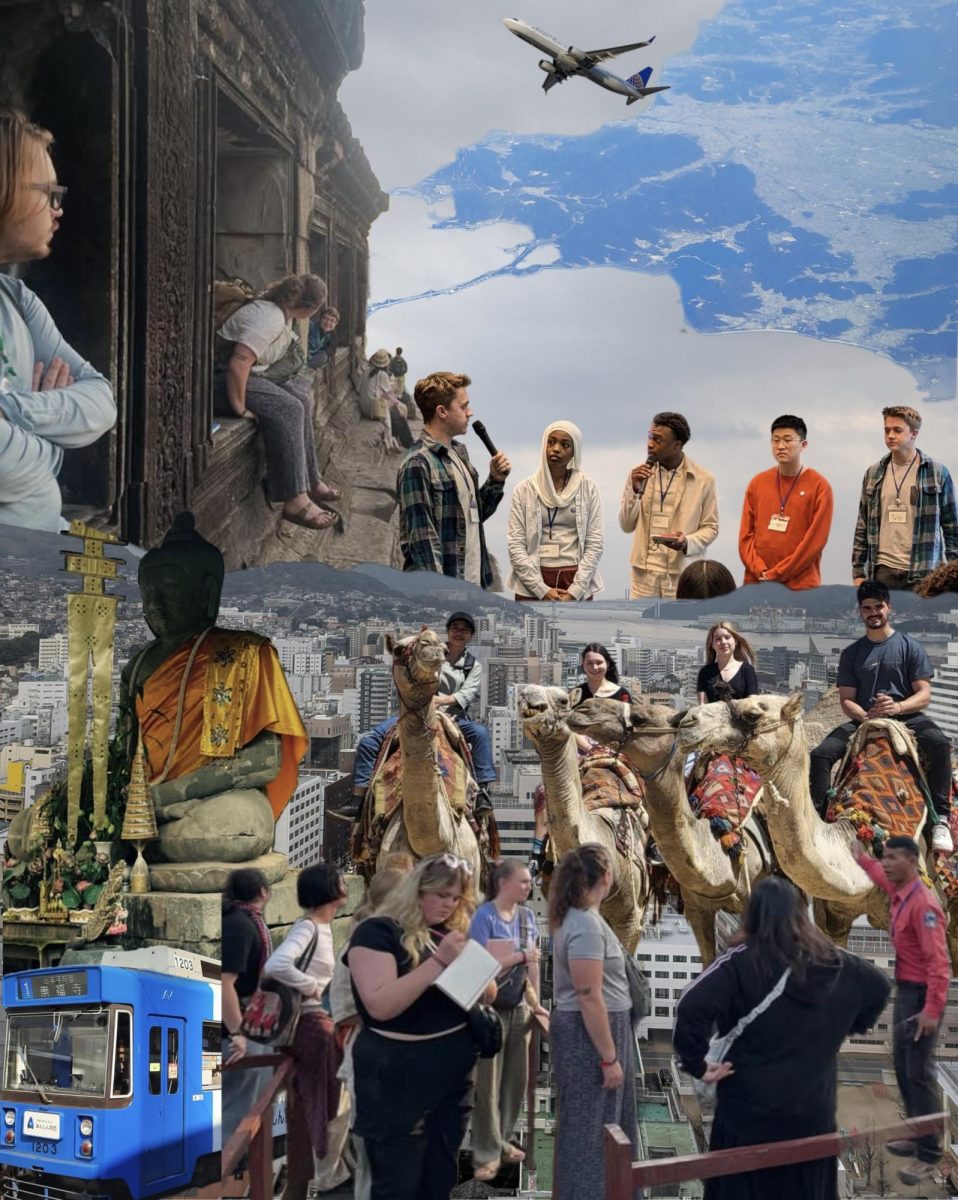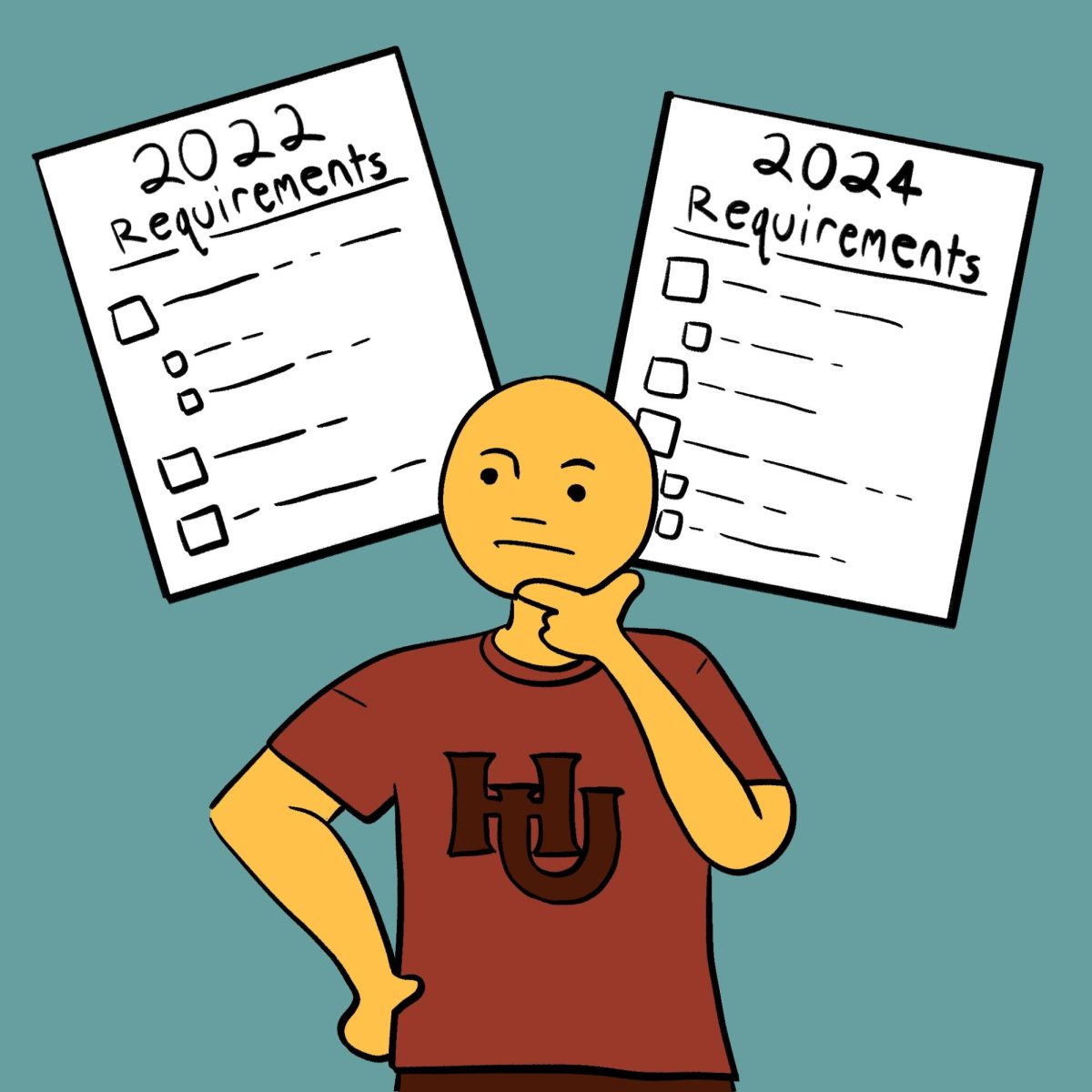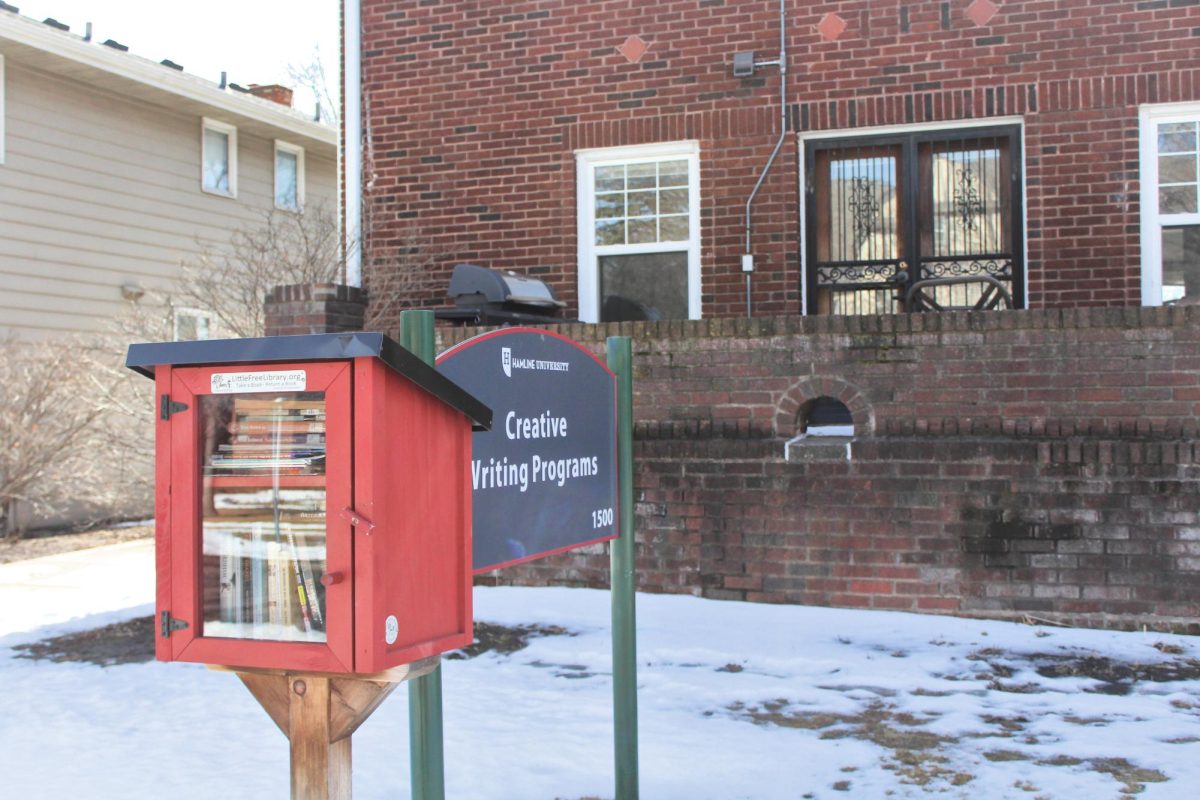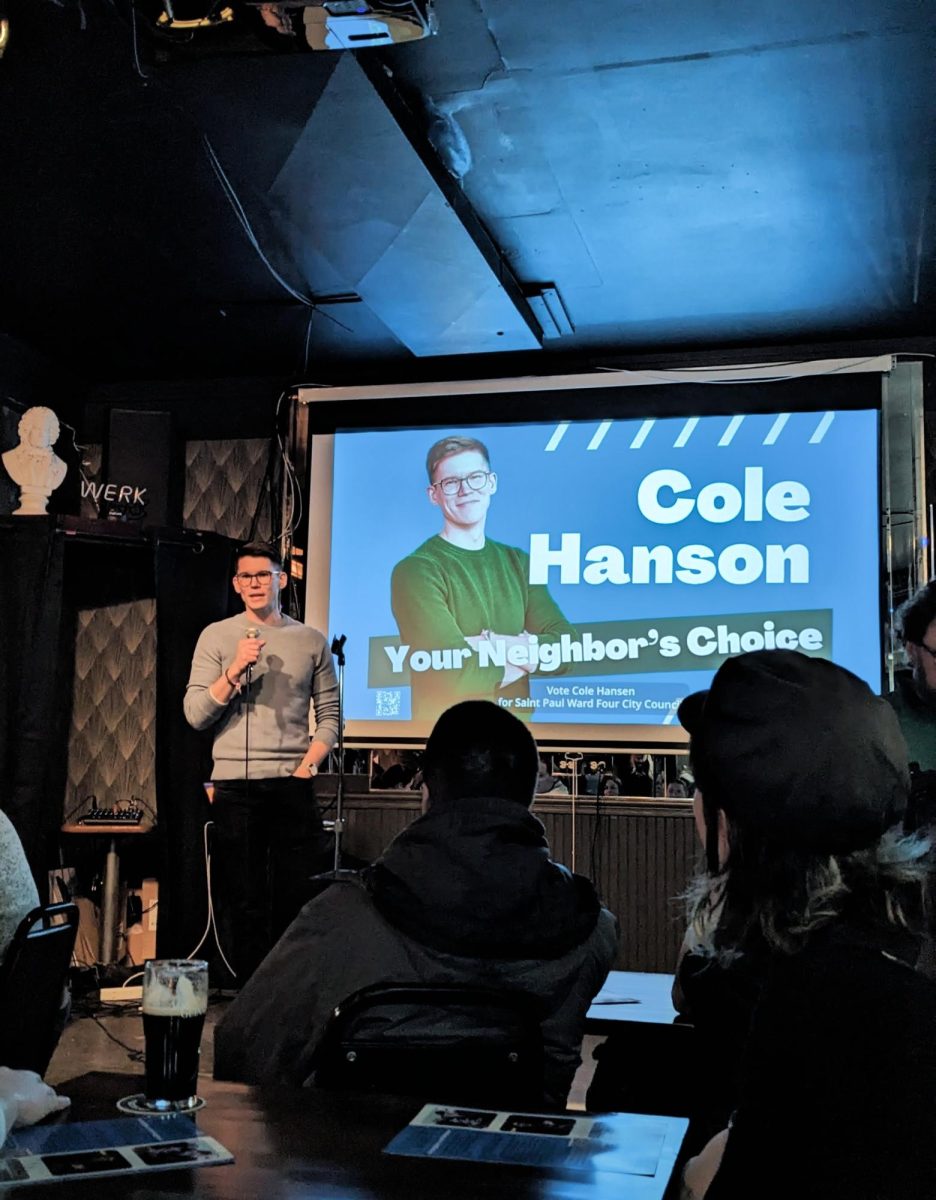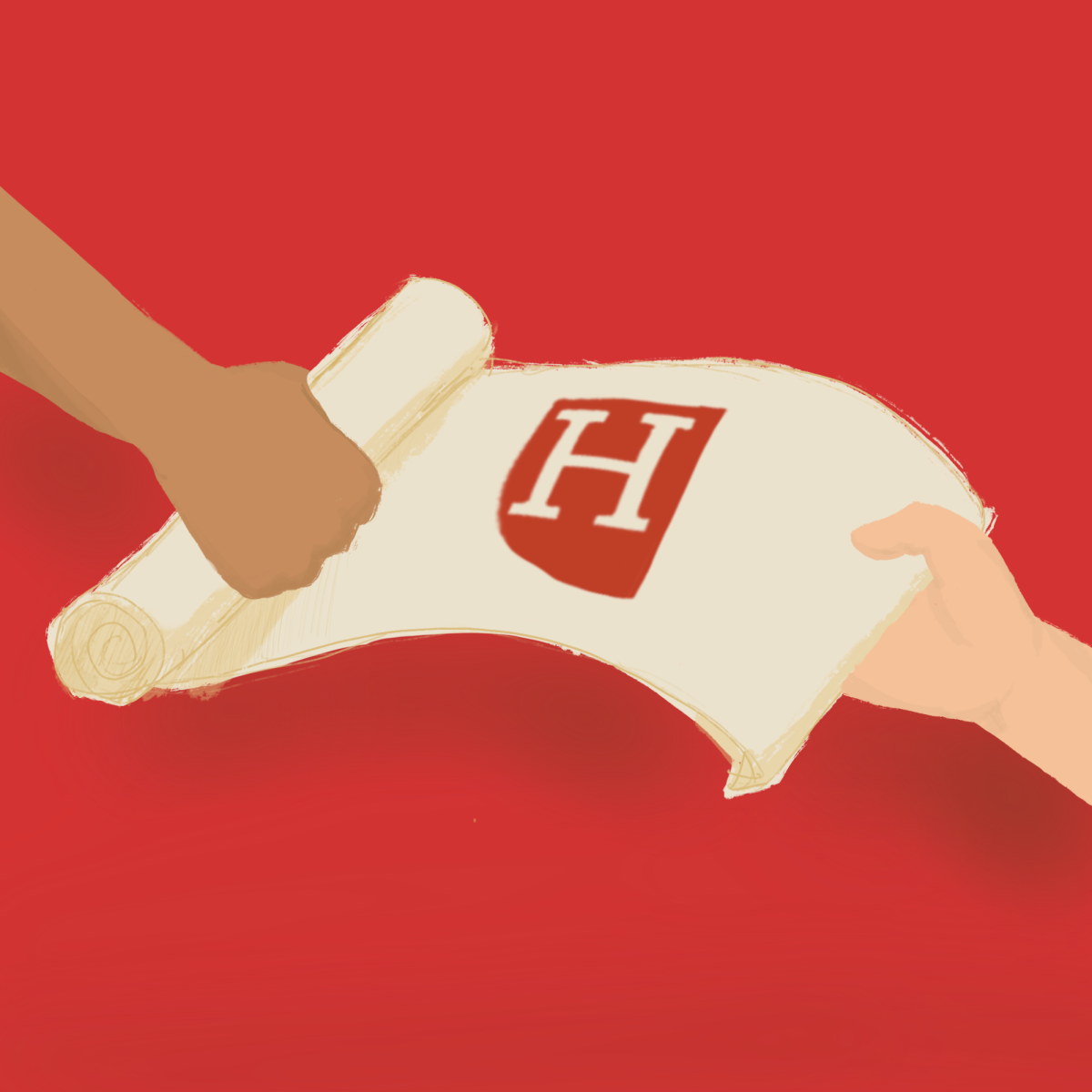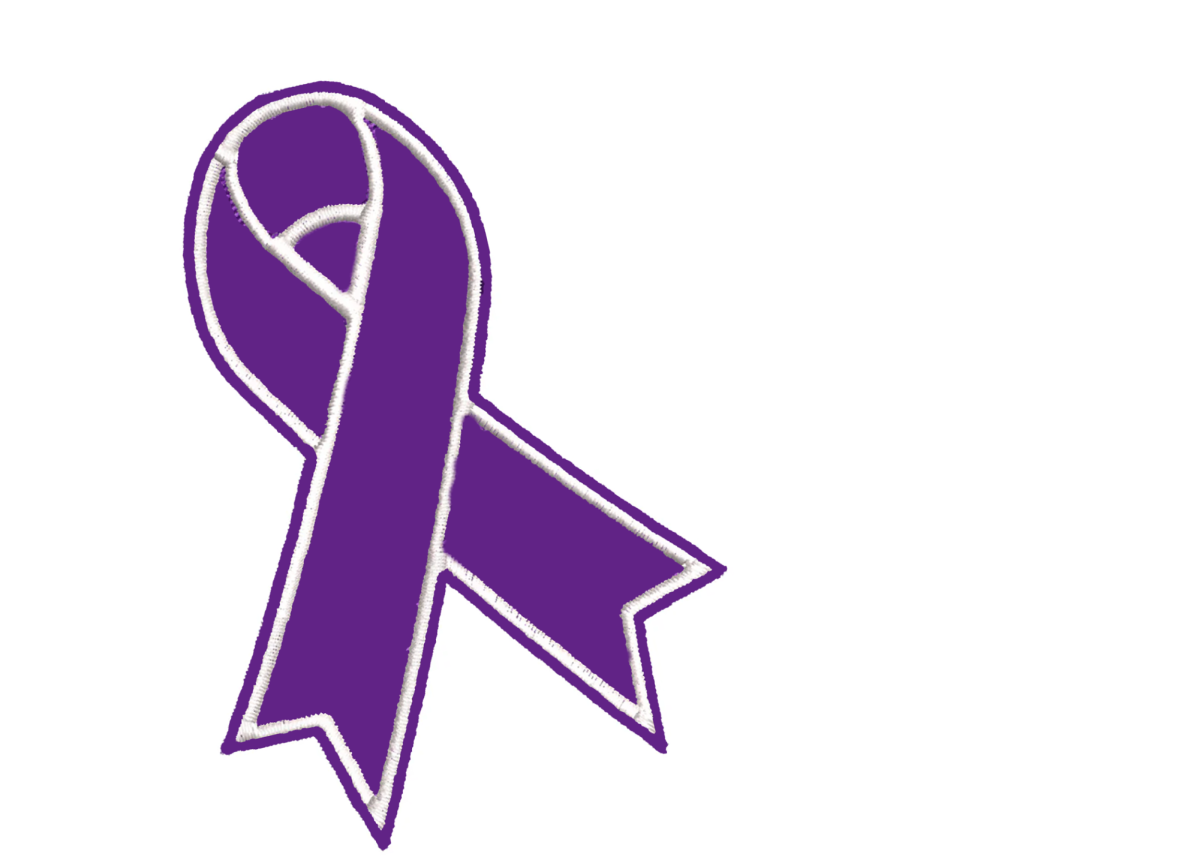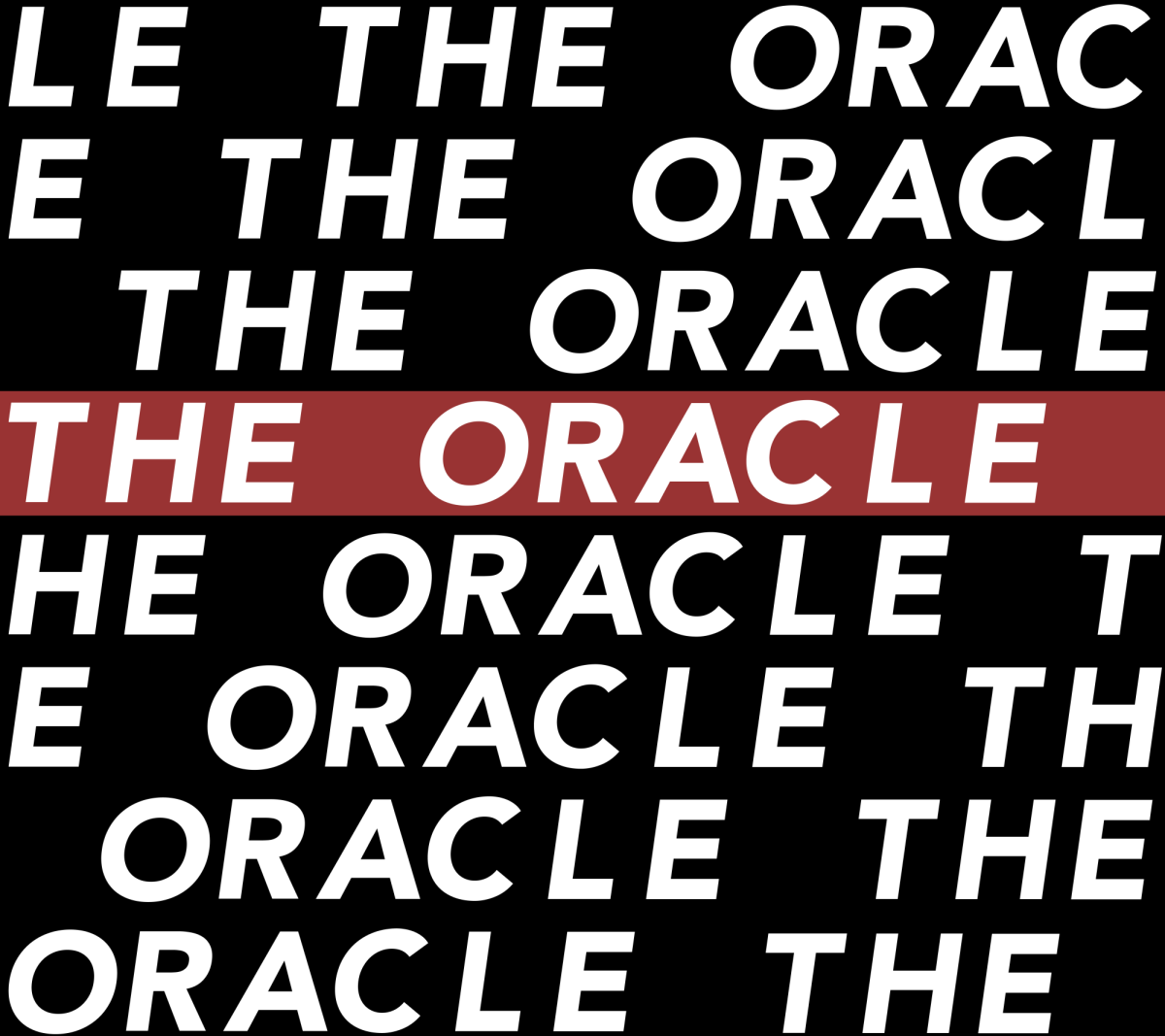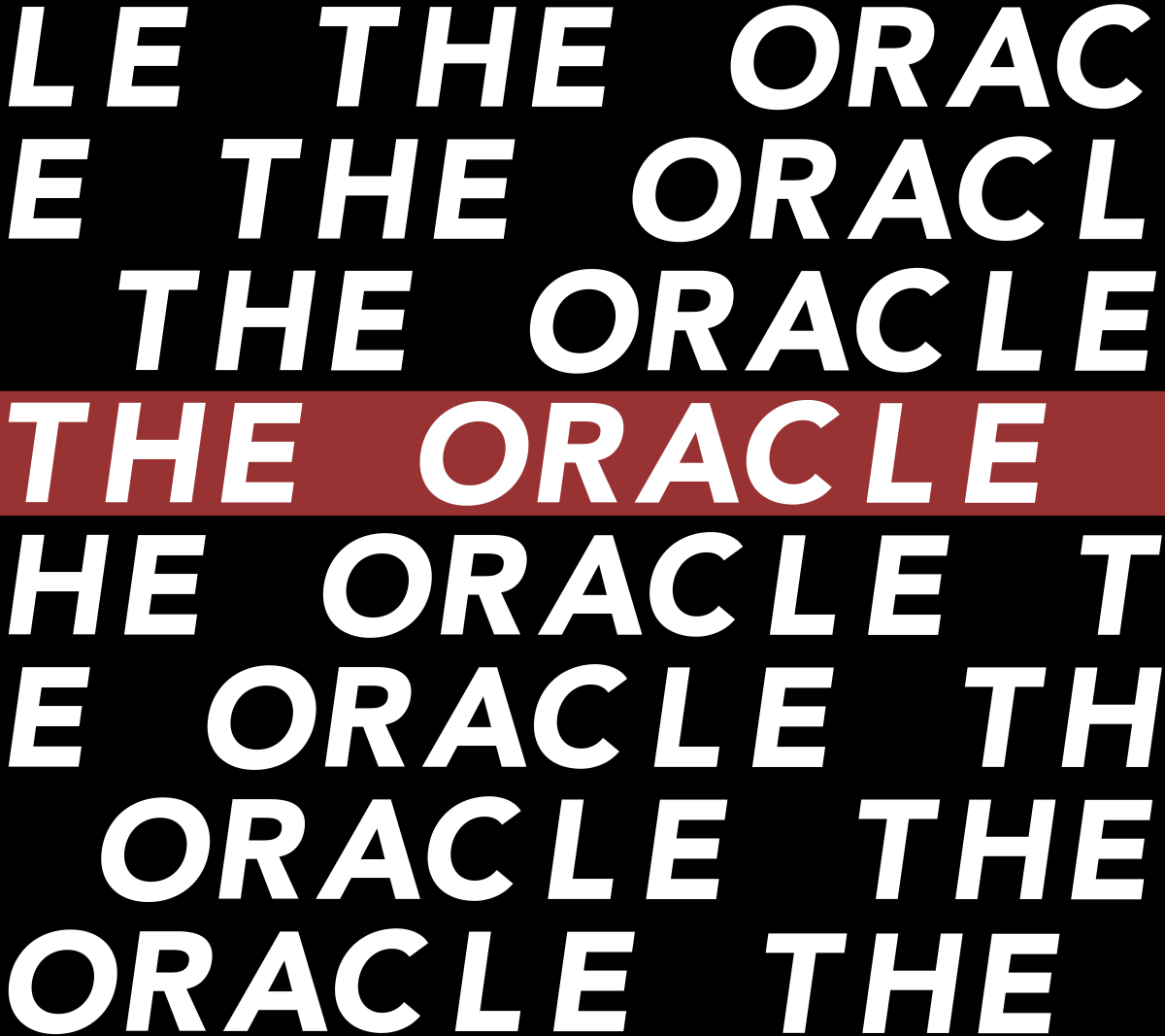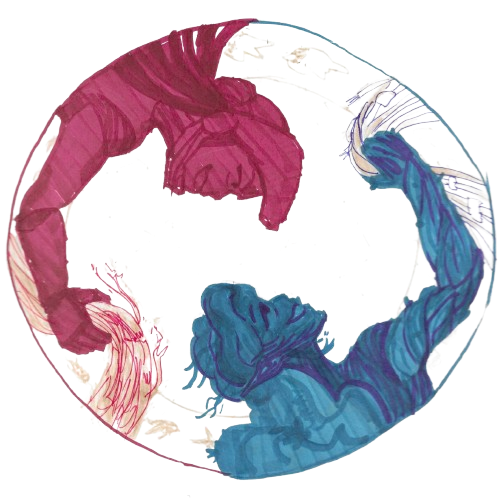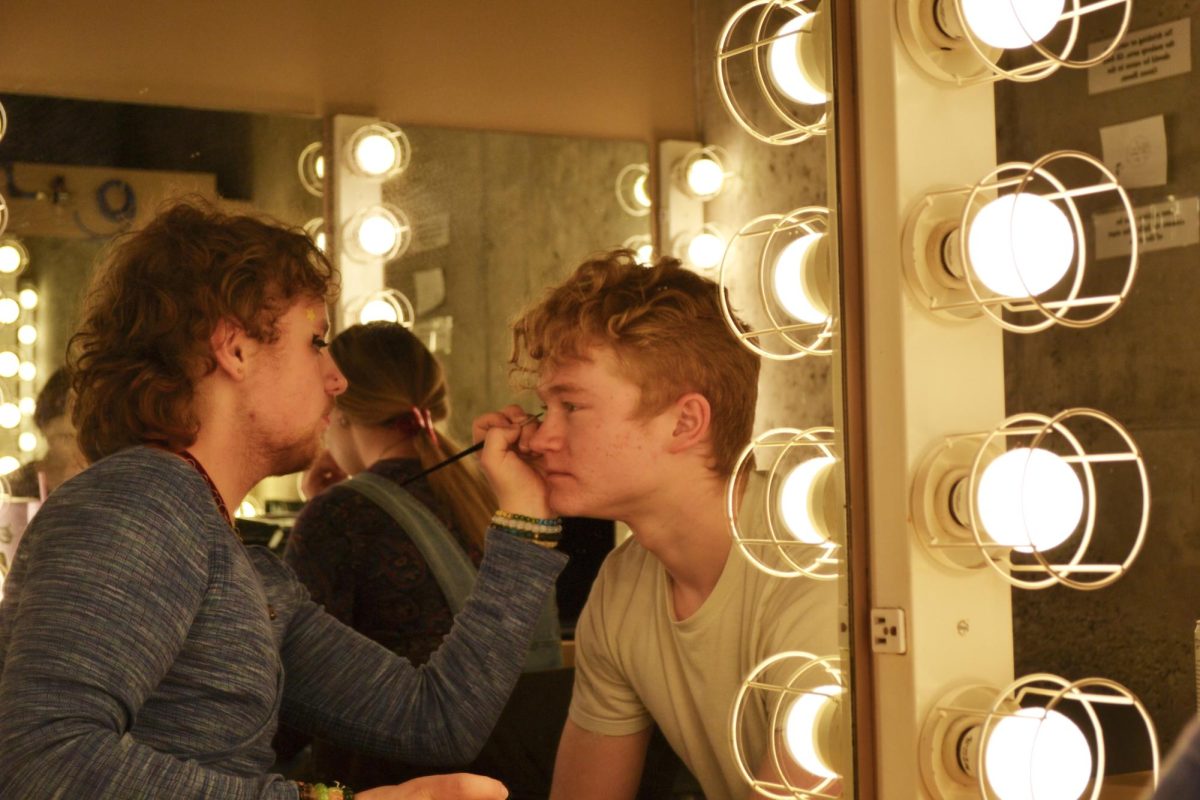Defending Sacred Justice with HIPS
Last Thursday, Sept. 26, Hamline’s Indigenous People’s Society (HIPS) invited all to the screening of Warrior Lawyers: Defenders of Sacred Justice, a one-hour documentary by Executive Producer and Director Audrey Geyer. During the screening snacks and refreshments were provided to all who attended. HIPS co-president and sophomore Layla Stenson wanted to create a comfortable event that would allow students to relax.
“We chose to host a movie night because we wanted to offer students a relaxing, low-pressure event that would be easy to attend.” Stenson said.
Geyer’s documentary focused on American Indian attorneys, tribal judges and their colleagues from the Little Traverse Bay Bands of Odawa Indians in Michigan. The documentary examined underreported issues like tribal sovereignty, federal recognition, violence against Indian women and more. The documentary opened with the beating of drums to introduce Harbor Springs, Michigan, where the documentary takes place.
The documentary is broken into sections, each focusing on a specific topic relating to Native American issues, such as boarding schools, the Indian Child Welfare Act (ICWA) and violence against Indian women.
“I was quite familiar with many of the topics discussed in the documentary, such as the history of native children being removed from families and sent to boarding schools. However, I had no knowledge of the great work being done regarding ICWA and the fact that eighty-five percent of children removed from homes were subsequently placed outside their families and communities–even when fit and willing relatives were available–was absolutely stunning.” Vice President of Inclusive Excellence David Everett said over email.
Throughout the film, Geyer jumps back and forth with interviews from the various tribal judges, attorneys, council members and peacemakers. For those who know, these specific topics brought memories back for some of the interviewees as some recalled grandparents, parents, or siblings who went to Boarding Schools. All tribes have generations that lived through the mandated boarding school era.
The documentary provides viewers, both Native and non-Native, with an understanding of how these social and systemic changes can help lower some of the country’s issues like the staggering incarceration rates, disproportionately high imprisonment of minorities, and more. Stenson points out that the documentary created space for these issues by highlighting Indigenous individuals in the legal system who have created significant change for the better.
“We decided to show it because it highlights Native American lawyers and judges who are committed to restructuring legal systems to better serve their communities–often in unconventional ways,” Stenson said.
At the end of the screening, Geyer joined via Goggle Meets to do a live Q&A about the film, the relevance of the film today, and any other questions for her. Geyer admitted that many of the reactions were in disbelief at the history that has been historically buried.
“[The Viewers] reactions are shock, sadness, you know disbelief that this is the untold history of our country. We have a lot of myths that tend to hide the negative history of what has happened” Geyer said.
After all questions were asked, the attendees bid farewell to Geyer as a wrap to the event. Stenson shared that she hopes the attendees realize that the justice system doesn’t have to sit on the sidelines and stare.
“I hope attendees take away from the documentary that state and federal justice systems don’t have to remain punitive. There are ways to hold individuals accountable while fostering healing for both the harmed and those who caused harm without relying on harsh punishment. I want them to recognize that self-determination–the power to shape the future of one’s people or oneself–is a powerful force with far-reaching positive impacts,” Stenson said.
For more information on the documentary, visit the film’s website at https://www.warriorlawyers.org.


